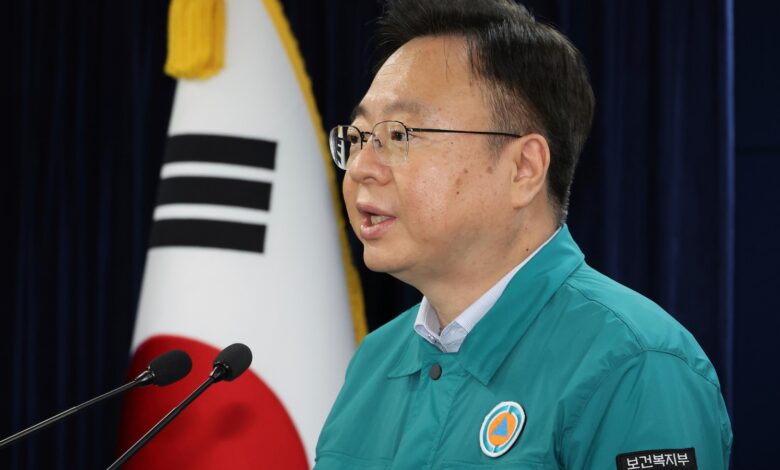South Korea will withdraw plan to suspend licenses of striking doctors to resolve medical impasse

SEOUL, South Korea — South Korea said Monday it’ll withdraw its earlier plan to suspend licenses of striking doctors as part of its efforts to resolve the country’s months-long medical impasse.
It wasn’t immediately known whether and how many of thousands of the striking doctors would return to work in the wake of the government’s announcement. Also, the plan could invite criticism that it hurts the principle of fairness over the government’s dealing with other previous labor strikes as well as doctors who already returned to work.
Health Minister Cho KyooHong said Monday the government has decided not to suspend their licenses of the strikers, regardless of whether they return to their hospitals or not.
He said the government’s decision is meant to address a shortage of doctors treating emergency and serious patients and restore a training system to add more professional doctors.
More than 13,000 junior doctors, who are medical interns and residents, walked off the job in February in protest of the government’s plan to sharply boost school admissions. Their walkouts have significantly burdened operations of university hospitals where they had worked while training.
A Seoul court in May ruled in support of the government’s plan.
The government later withdraw its plan to suspend licenses of doctor who returned to their hospitals but didn’t do so on others who remained off the job.
Officials have said they want to add up to 10,000 doctors by 2035 to cope with the country’s fast-aging population and a shortage of physicians in rural areas and in low-paying yet essential specialties like pediatrics and emergency departments.
Doctors say schools aren’t ready to handle an abrupt increase in students and that it would ultimately undermine the country’s medical services. But critics argue that physicians, one of the best-paid jobs in South Korea, are mainly worried that having more doctors would lower their incomes.
The striking doctors are a fraction of all doctors in South Korea, estimated to number between 115,000 and 140,000. But in some major hospitals, they represented about 30% to 40% of the doctors, assisting fully qualified doctors and department chiefs during surgeries and other treatments while training. Their walkouts have caused cancellations of numerous surgeries and other care at their hospitals and threatened to disrupt South Korea’s medical services.






